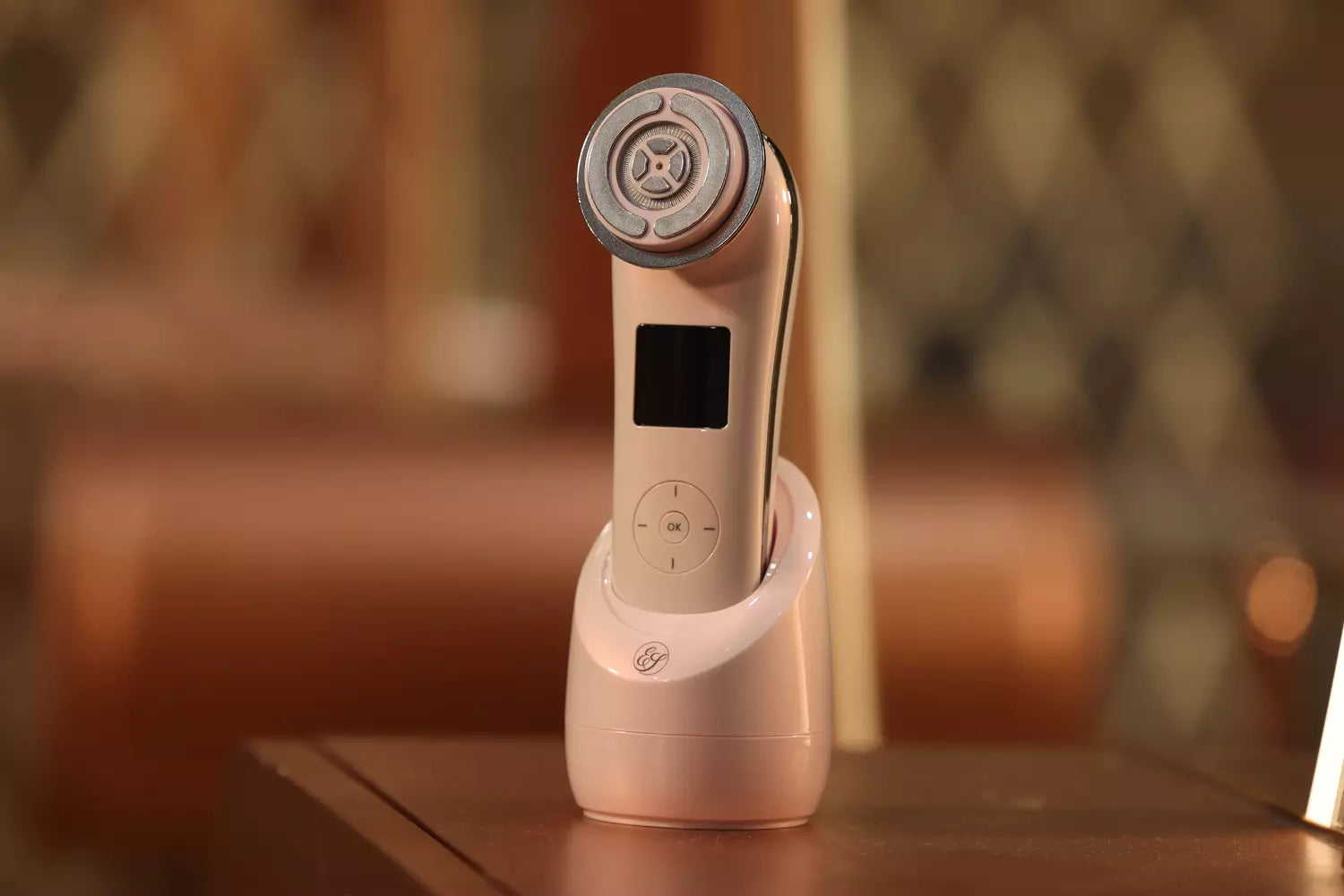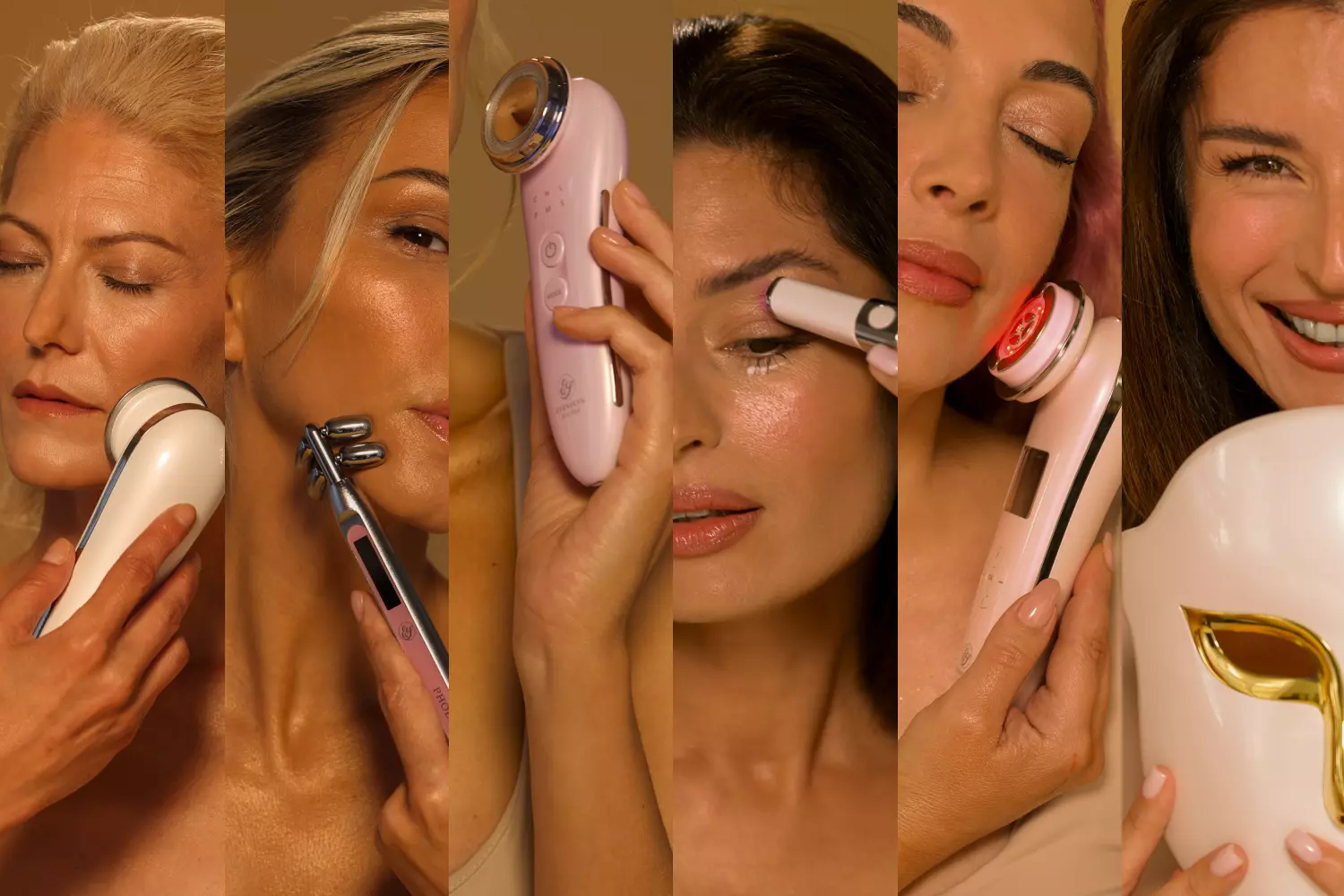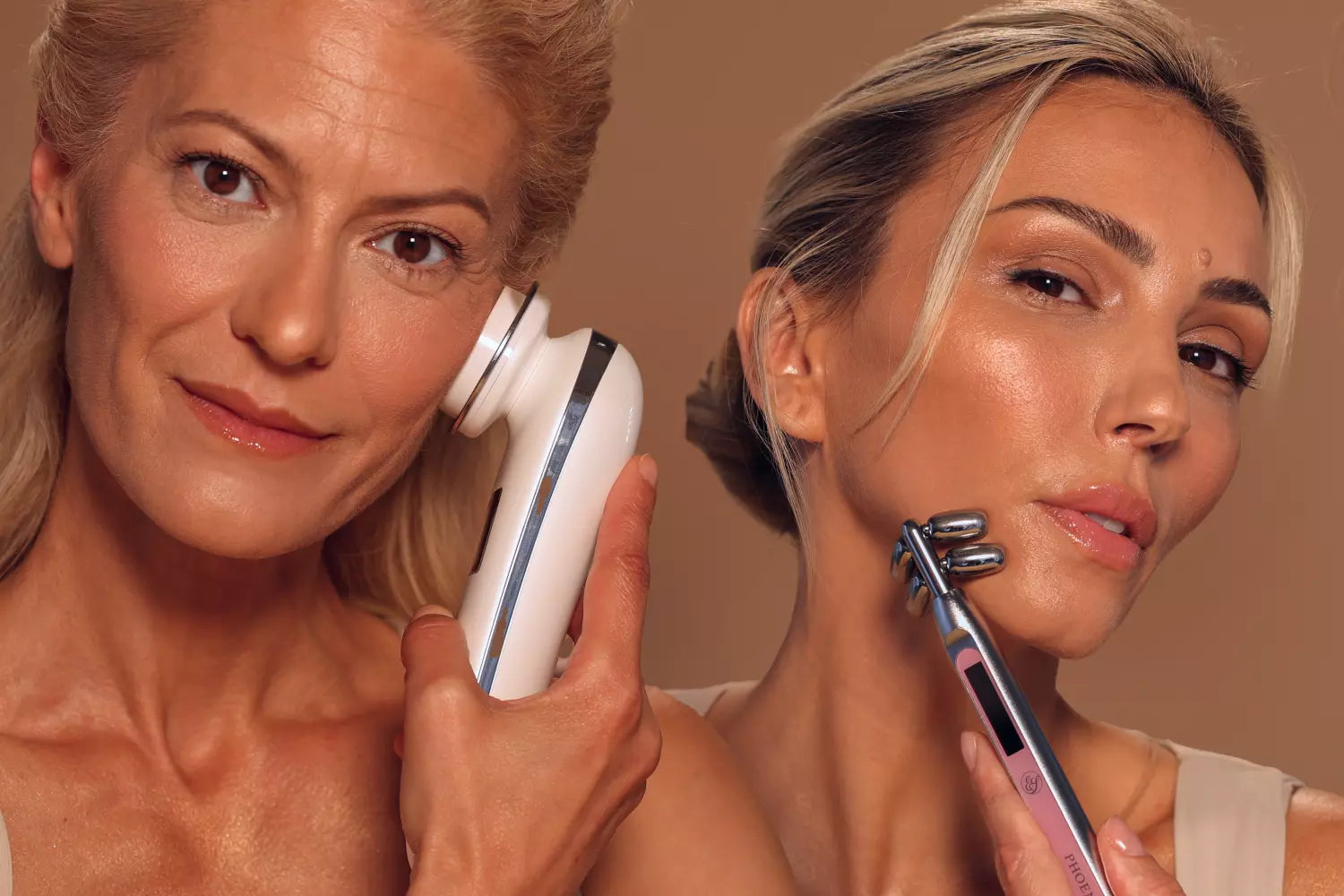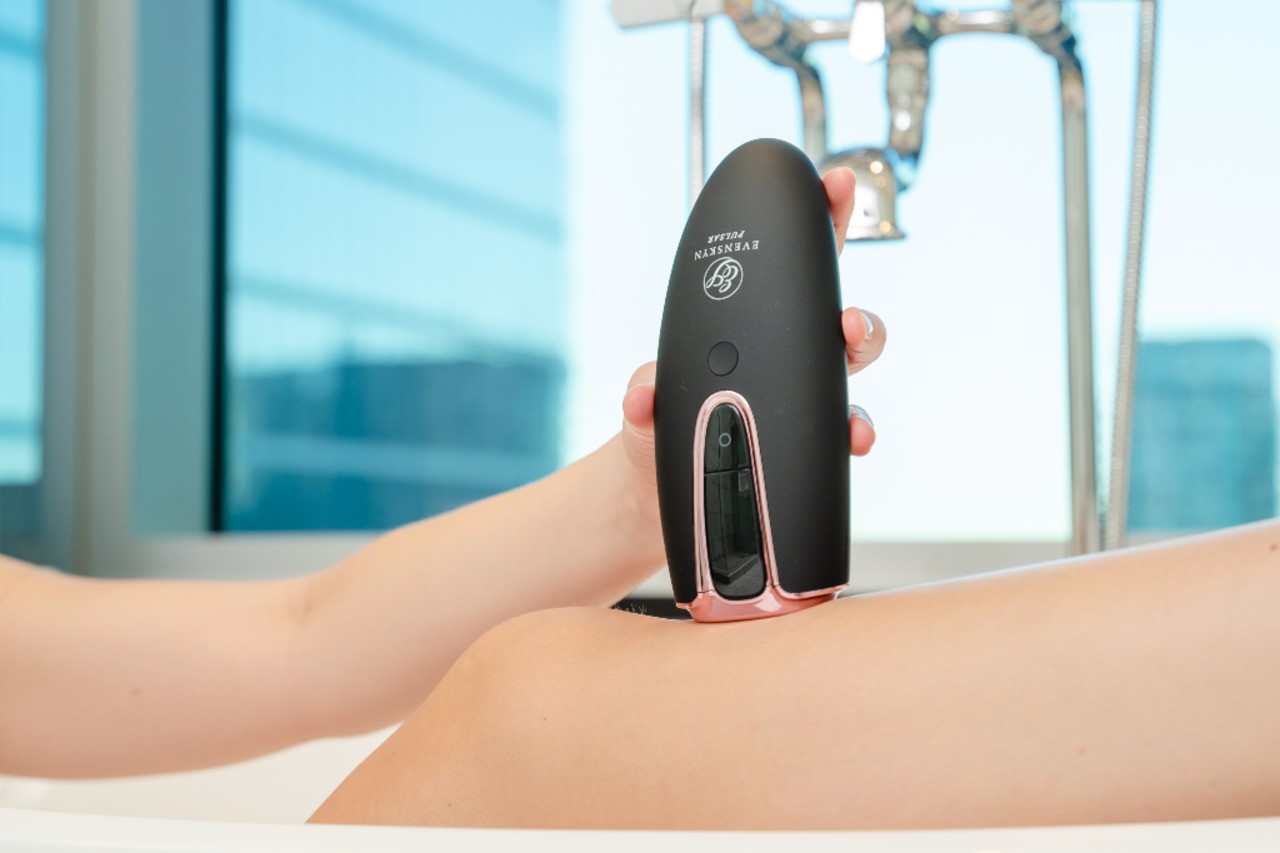- Actually, this is a yes and no both! In the wrong hands, and the ‘wrong’ laser for the ‘wrong’ can be unsafe. Darker skin types often do not make good candidates for laser hair removal (for most lasers). Similarly, actual ‘laser’, is a clinical procedure, is very specific, does require down time between sessions and requires an experienced laser technician to do it. However, at home solutions, such as the Pulsar IPL/laser hair removal handset, are safe given that they use a safer, almost completely pain-free IPL (Intense Pulsed Light) technology which filters out harmful UV radiation by blocking wavelengths below 500nm, thus making it almost completely safe by any one following the User Manual.
- False: Laser hair removal, or IPL hair removal, can be used for almost all your body, not limited to, but including, your face, arms, legs, feet, toros, public regions, and yes - even your buttocks! (Note: eyes are to be avoided, and the EvenSkyn Pulsar IPL/Laser hair removal handset comes with safety glasses included!).
- Likely false: While health authorities have approved various ‘laser’ and light-based technologies for ‘hair reduction,’ none have relied on enough evidence to conclude that a form of hair removal is ‘permanent.’ While IPL and laser, both, do a fantastic job at stable long-term reduction in the number and growth rate of hairs, multiple sessions are required to achieve completely hair-free skin, and often touch-up sessions are required months apart to ensure the maintenance of completely hair-free skin.

- Depends! While commercial laser clinics treatments can be very painful, depending on the machine used, because the machine intensities tend to be quite specific and the laser being quite focused, if an at-home device such as the EvenSkyn Pulsar is used, the experience can be completely pain-free. However, even with at-home laser/IPL hair removal devices such as the EvenSkyn Pulsar (and the upcoming EvenSkyn Pulsar X), the highest intensities can deliver up to 16 Joules of energy per square centimeter and this can still cause the treated area to feel quite warm, and this hot/warm sensation may be noticeably pronounced for those with very sensitive skin. Nevertheless, when compared to laser at cosmetic clinics, in terms of pain, at-home light-based devices such as the EvenSkyn Pulsar series can be considered pain-free.
Myth #5: IPL or Laser Hair Removal can cause skin cancer
- False! The Skin Cancer Foundation has found no link to increased chances of developing skin cancer when lasers are used to achieve various end results, be it for the reversal of sun damage, to treat wrinkles, and others, importantly, including hair removal. Their analysis considered the full range of lasers such as Q-switched ruby, Q-switched Nd-YAG, Q-switched alexandrite and Pulse Dye Laser (PDL). Similarly at-home solutions for laser and IPL hair removal such as the EvenSkyn Pulsar have been deemed safe for use by the regulators. With specific attention to IPL and cancer, the following excerpt from a very well cited paper in the Lasers in Medical Science scientific journal helps shed some light on the very lengthy period of time, as well as breadth of types of light-based treatments that have been evaluated by the global medical community, inferring that such treatments do not lead to increased chances of developing cancer, “Typical IPL device settings will not have a photochemical or photothermal reaction with melanomas. The existing evidence base of over 25 years of laser and IPL use to date has not raised any concerns regarding its long-term safety,” and that, “Upon reviewing a broad range of literature, a conclusion has been drawn that if a dermal melanoma is treated, there will be no photochemical reaction as typical IPL wavelength outputs are not capable of doing so. Melanomas will absorb the IPL wavelengths superficially converting to heat; it is possible this will kill cells in the top layer, and it will continue to develop as it would have done without IPL treatment.”
- False! Studies have consistently shown that grey, blonde, red and white hair which typically do not contain pigment in their roots, do not respond well to laser hair removal treatment. This is also true when they are targeted by IPL hair removal devices (in-clinic or at-home).

- False! BUT, it does last a lot longer if done properly, and with regular touch up sessions (that may be once every six months to a year), the treated areas may stay hair-free perpetually! Hair does have a tendency to grow back with regeneration being a natural process, and unwanted hair often comes back with hormonal changes that often occur during pregnancy.
- Depends! With clinical setting treatments, the potential for rare occurrences of pigmentation can occur, especially given the higher intensity of clinical treatments. Thus, invariably, the potential for pigmentation or hyperpigmentation is significantly reduced by using devices such as the EvenSkyn Pulsar series that can be used at much lower settings than is often possible for clinical commercial-grade machines, and whereby device such as the EvenSkyn Pulsar Laser & IPL hair removal handset utilize more scattered IPL technology which do not focus all the energy in spot - at least not nearly as much as laser user in cosmetic clinics. Thus, when getting treated at a clinic, it is always prudent to check to ensure that the clinic has been properly certified, and the technicians are appropriately trained, certified and supervised. Nevertheless, a person considering laser hair removal should always consult a physician (ideally a dermatologist) prior to doing any laser and IPL hair removal treatment to ensure that they are a candidate. Individuals with darker skin type, for example, tend to be more likely to suffer from hyperpigmentation and thus should exercise extra caution when considering such hair removal treatments.
- Possibly (read on)! Just as alluded to above, given the higher energy intensities, as well as more-focused laser used in most commercial cosmetic clinical settings, the chances for redness does exist. For at-home solutions such as the revolutionary EvenSkyn Pulsar laser / IPL hair removal device, that used scattered Intense Pulsed Light, and which don’t transfer extreme amounts of energy (given the ability of the user to set the device to very low settings when they first start using it), the risk of having redness and irritation is significantly reduced. In either case, if irritation and/or redness occur, they are not all the different to the inflammation often observed if such an area were to be waxed, and such inflammation often naturally subsides within a few hours of the treatment, and apply ice packs and/or water-based moisturizers can help with soothing the inflamed skin.
- False! Laser hair removal or hair removal using Intense Pulsed Light (the technology used by the EvenSkyn Pulsar series devices) is not recommended for women who are pregnant. This recommendation stands due to the fact that no scientific human studies have been carried out with a large enough sample size that have studied the relationship between the use of lasers for hair removal and fetal development in the womb. Typically, women will wait until after pregnancy, and the seeking and following of medical recommendations from a doctor should be the primary decision-making methodology for individuals considering laser hair removal prior-to, during or after pregnancy.

1. Ash C, Town G, Whittall R, Tooze L, Phillips J. Lasers and intense pulsed light (IPL) association with cancerous lesions. Lasers Med Sci. 2017;32(8):1927-1933. doi:10.1007/s10103-017-2310-y
2. Nanni, Christopher A., and Tina S. Alster. "Long‐pulsed alexandrite laser‐assisted hair removal at 5, 10, and 20 millisecond pulse durations." Lasers in Surgery and Medicine: The Official Journal of the American Society for Laser Medicine and Surgery 24.5 (1999): 332-337.










Leave a comment
All comments are moderated before being published.
This site is protected by hCaptcha and the hCaptcha Privacy Policy and Terms of Service apply.